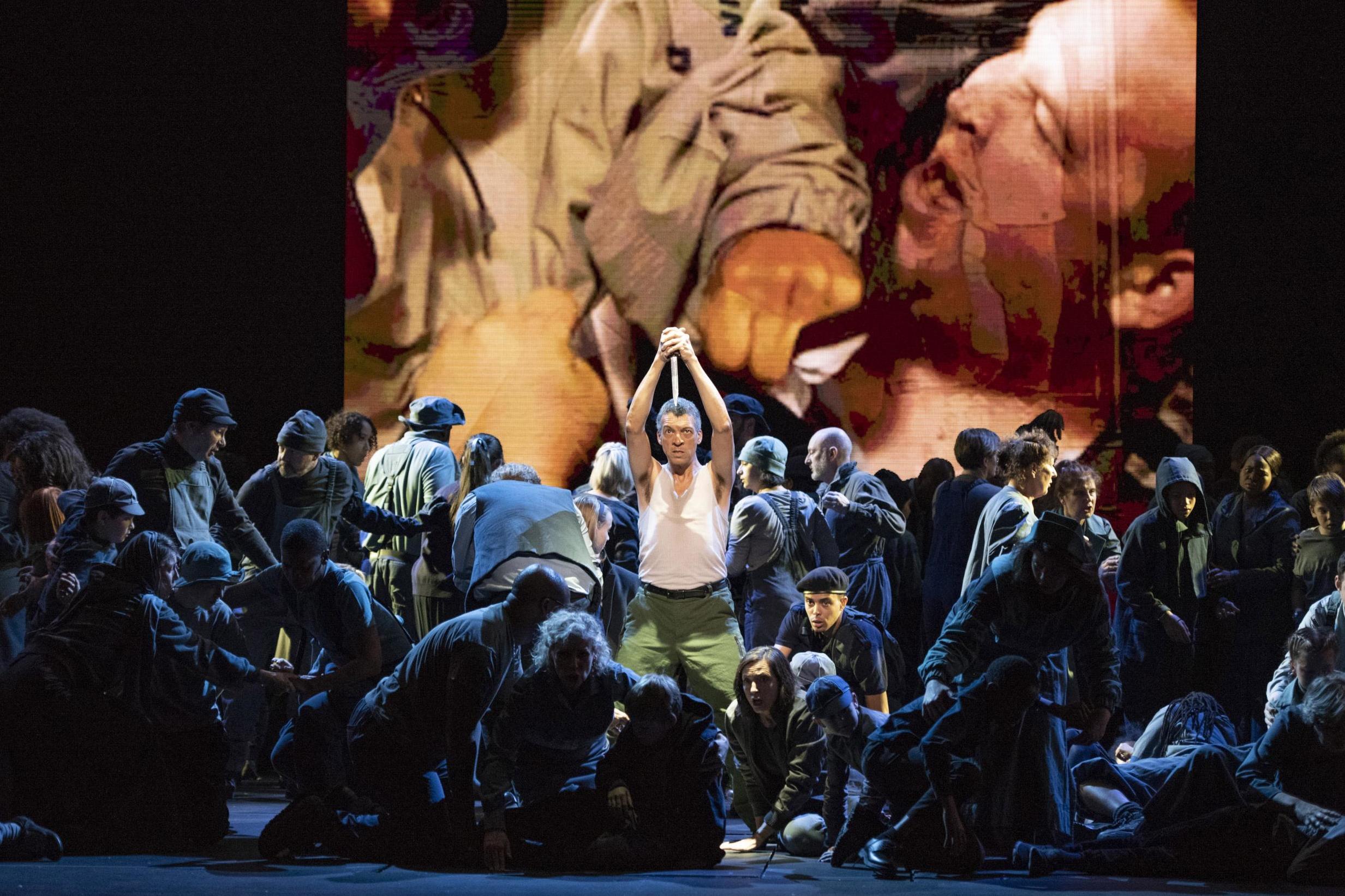War Requiem review: This tale of suffering and the struggle to understand it is superb
The current rise of nationalism and the beginning of the end for the European Union as the greatest peace project ever created loom as menacing subtexts

Your support helps us to tell the story
From reproductive rights to climate change to Big Tech, The Independent is on the ground when the story is developing. Whether it's investigating the financials of Elon Musk's pro-Trump PAC or producing our latest documentary, 'The A Word', which shines a light on the American women fighting for reproductive rights, we know how important it is to parse out the facts from the messaging.
At such a critical moment in US history, we need reporters on the ground. Your donation allows us to keep sending journalists to speak to both sides of the story.
The Independent is trusted by Americans across the entire political spectrum. And unlike many other quality news outlets, we choose not to lock Americans out of our reporting and analysis with paywalls. We believe quality journalism should be available to everyone, paid for by those who can afford it.
Your support makes all the difference.Benjamin Britten’s War Requiem is all bells, children’s choirs, trumpet calls, choral shouts, solo voices leaping out like flames and angular melodic lines over a ground-bass of lamentation. Its rock-hewn contours have such clarity – especially when the performers are dispersed round the auditorium – that the experience is almost visual. Which is presumably why nobody in Britain has thought to give it a full theatrical staging – until now.
Following the Latin Mass for the Dead interspersed with Wilfred Owen’s ashen poems, this is a tale of suffering and the struggle to understand the reason for it, so there’s no ready-made plot to hang a staging on. For English National Opera, director Daniel Kramer has invited the German-born photographer Wolfgang Tillmans and the choreographer Ann Yee to give the oratorio visual form. And from the moment the stage is filled with huddled masses under a dark sky – refugees from any and every conflict – it is clear they have found a language which could work.
Apart from the soprano, tenor and baritone soloists, all the figures on stage are chorus. Yee has the children’s chorus periodically doing what children do – play games – but also enacting a communal lament over the dead who thickly covered the stage. The adults move like one organism, sometimes as prisoners circling their exercise-yard, sometimes limping along on a road to nowhere, and Yee’s choreography – which does admittedly become repetitive – is commendably alert to the nuances of the score.
As are Tillmans’ slow-moving designs. At times he simply colours the stage through lighting, or lets an image burn into our consciousness – a giant white chrysanthemum beside a blasted tree, or a children’s snowball fight which comes and goes in ghostly silence – and for a lot of the time he leaves the stage completely blank. If only more stage designers would understand, as he does, that less can be more.
Moments of operatic cliche in the music are complemented by directorially inserted messages – the children being marched off like little soldiers-in-the-making, or two boys in oversized trench coats squaring up to each other with knives – and sometimes those messages misfire. For example, a poster drawing attention to the Srebrenica massacre appears then disappears, seeming arbitrary and gratuitous. (Well, Britten himself ducked out of the work’s moral challenge, by tethering it tamely to the 1914-18 war, rather than to the just one he had evaded by fleeing to America.) But these are minor quibbles. The current rise of nationalism, and the beginning of the end for the European Union as the greatest peace project ever created, loom here as menacing subtexts.
Musically the whole event is superb, thanks to Martyn Brabbins’ super-sensitive conducting, inspired singing by the chorus and by the Finchley Children’s Music Group, and searing performances by tenor David Butt Philip, baritone Roderick Williams, and the incredible Emma Bell.
This show is now in repertory, running in parallel with another must-see at the Coliseum: David Alden’s production of Donizetti’s Lucia di Lammermoor, which knocks spots off the Covent Garden version.
War Requiem is at the Coliseum, London, until 7 December eno.org
Join our commenting forum
Join thought-provoking conversations, follow other Independent readers and see their replies
Comments